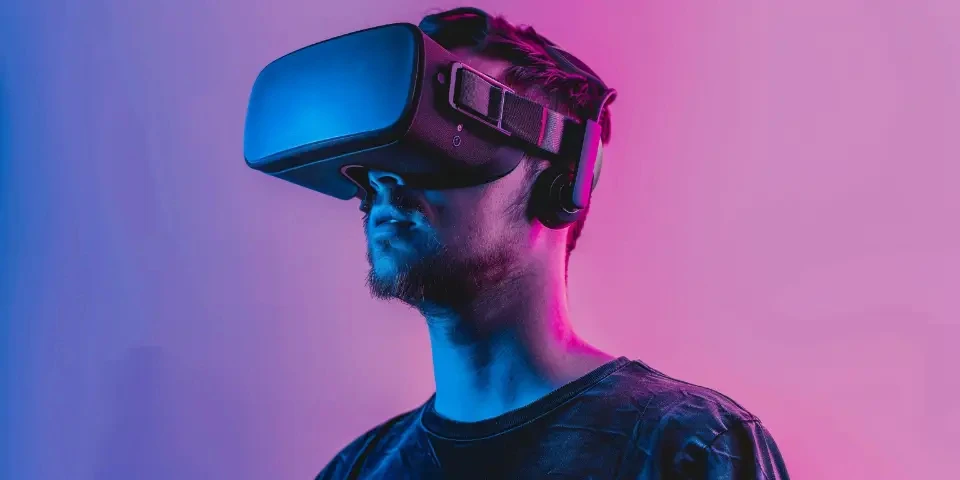Education has witnessed tremendous advancements with the integration of cutting-edge technologies. The emergence of artificial intelligence (AI) has the potential to revolutionize the learning experience for students. Among the various AI-powered platforms, Kino AI stands out as a game-changer in the field of education. With its innovative features and capabilities, Kino AI enhances education in multiple ways, providing a personalized and immersive learning environment for students.
1. Personalized Learning:
Kino AI utilizes advanced algorithms to analyze individual student's strengths, weaknesses, and learning patterns. This enables the platform to tailor educational content and activities according to each student's unique needs. Students can receive personalized recommendations, challenging tasks, and targeted feedback, ensuring an optimized learning experience.

The platform also adapts to the student's pace of learning, helping them progress at their own speed. This personalized approach boosts engagement and motivation, enabling students to reach their full potential.
2. Interactive Virtual Classrooms:
Kino AI offers virtual classrooms that simulate a real-life classroom experience. Through the integration of AI-powered avatars and voice recognition technology, students can participate in interactive discussions, ask questions, and receive immediate responses. This virtual classroom environment empowers students to interact with their peers, teachers, and educational resources, fostering collaborative learning.
The platform also employs facial recognition technology to monitor student attentiveness and emotions. This allows teachers to identify and support students who may require additional assistance or have a particular learning style.
3. Intelligent Content Creation:
Kino AI simplifies content creation for educators by leveraging AI algorithms. Teachers can generate interactive study materials, quizzes, and assignments tailored to the specific needs of their students. The platform provides a library of resources, including digitized textbooks, educational videos, and interactive simulations, enhancing the variety of instructional materials available.
Furthermore, Kino AI empowers teachers to analyze the effectiveness of their instructional content, enabling continuous improvement and refinement of teaching practices.
4. Adaptive Assessments:
Kino AI offers adaptive assessments that evaluate student performance and provide immediate feedback. These assessments adjust the difficulty level based on the student's ability, ensuring accurate and meaningful evaluation. Students can track their progress, identify areas for improvement, and focus their learning efforts accordingly.
The platform's data-driven insights enable teachers to identify learning gaps and personalize their instructions, facilitating targeted interventions and differentiation in the classroom.
5. Assistance for Special Needs Education:
Kino AI's AI-powered tools cater to the needs of students with diverse learning abilities. The platform can provide alternative modes of communication for students with speech or hearing impairments. It also offers adaptive learning materials for students with learning disabilities, ensuring an inclusive educational experience for all.
Kino AI's advanced analytics and tracking systems provide valuable data to special education teachers and aid in developing personalized strategies and interventions for students with special needs.
6. Simulated Experiments and Laboratories:
Kino AI eliminates the limitations of physical laboratories by providing virtual simulations and experiments. Students can engage in hands-on learning experiences, performing virtual experiments and analyzing results in a safe and controlled environment. The platform enables students to explore concepts, conduct research, and develop critical thinking skills through immersive simulations.
7. Seamless Integration with Existing Education Systems:
Kino AI seamlessly integrates with existing educational tools and learning management systems, allowing educators and students to access a unified learning platform. This integration enhances productivity and efficiency, eliminating the need for educators to switch between multiple software applications.
The platform also ensures data security, protecting sensitive student information and providing secure channels for communication and collaboration.
8. Real-time Analytics and Progress Tracking:
Kino AI's comprehensive analytics dashboard provides real-time insights into student performance, engagement, and progress. Teachers can monitor individual and class-wide learning patterns, identify recurring challenges, and modify instructional strategies accordingly.
Parents and guardians can also access the platform to stay informed about their child's academic progress, promoting transparency and active involvement in their education.
FAQs:
1. How does Kino AI ensure student data privacy?
Kino AI complies with strict data protection regulations and employs robust encryption techniques to safeguard student data. The platform ensures that all data is stored securely, and access is granted only to authorized individuals involved in the educational process.
2. How does Kino AI adapt to different learning styles?
Kino AI's AI algorithms analyze the learning patterns and preferences of each student. The platform adapts its content delivery and activities to align with different learning styles, ensuring that individual student needs are met effectively.
3. Is Kino AI suitable for all educational levels?
Yes, Kino AI caters to students of all educational levels, from primary schools to higher education institutions. The platform's adaptive features enable personalized learning experiences irrespective of the level of education.
References:
1. Smith, J. (2020). The Impact of AI on Education. EdTech Magazine.
2. Brown, M. (2019). Leveraging Artificial Intelligence in Education. Inside Higher Ed.
3. Larsen, M. (2018). AI in Education: Teaching and Learning. Udacity Blog.






